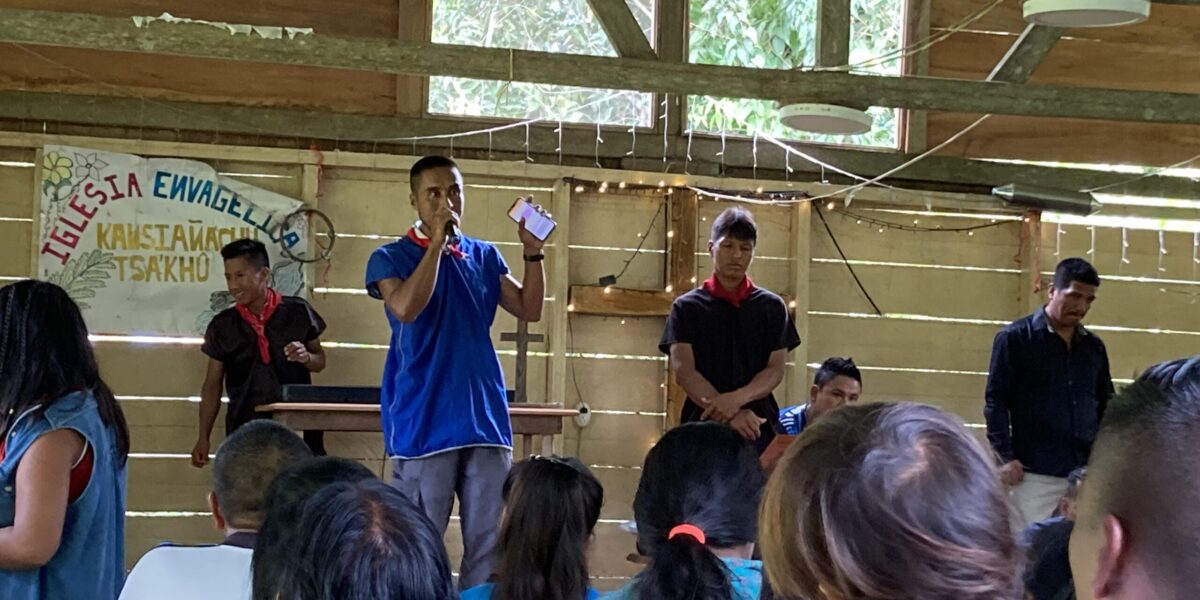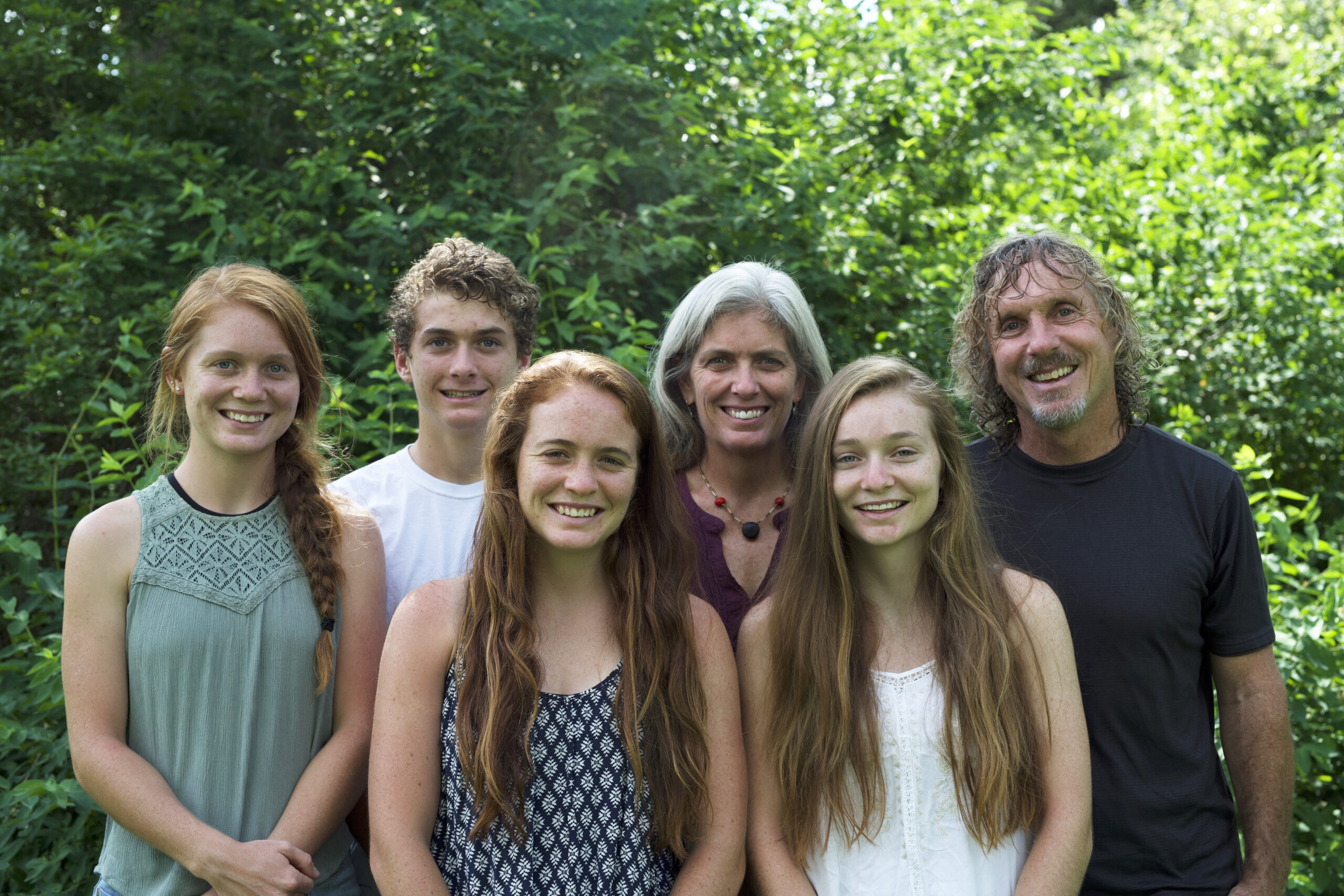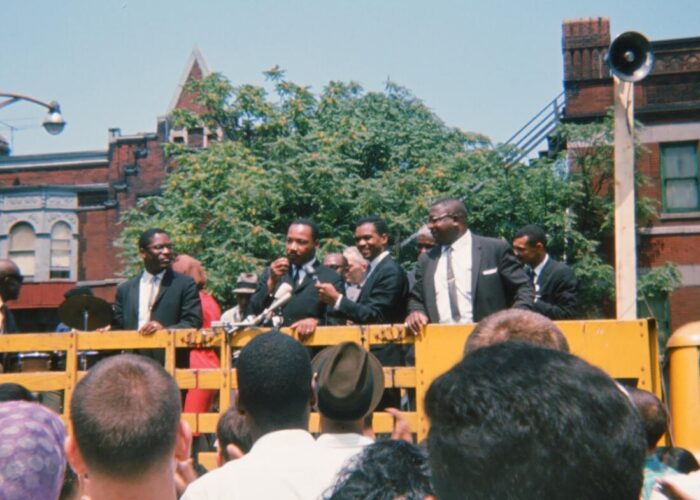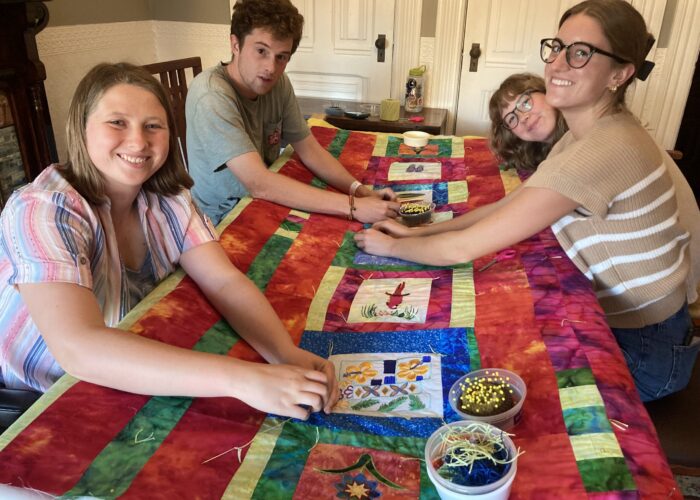Always be ready to answer everyone who asks you to explain about the hope you have. But answer them in a gentle way with respect. Keep your conscience clear. Then people will see the good way you live as followers of Christ. – 1 Peter 3:15-16
We have hope because of the lived reality we experienced while accompanying the Cofán people at the village of Zábalo in Ecuador. At the heart of two-way mission is a Christian story of hope that preserves the elements of gift, gratitude and surprise. In other words, God shows up.
Two-way mission flows in both directions. It implies a bidirectional communication channel. This type of exchange of information allows for feedback, interaction and a more dynamic exchange of ideas.
On Jerrell’s birthday, April 21, 2016, we met with Hiter Yiyoguaje for the first time, in his home, not knowing this was the end of the beginning — the conceptualization stage of two-way mission. As we grew to know Hiter we learned that the choices he made and how he came to understand his own life were largely determined by the stories of his ancestors and his shaman lineage. Growing up, the dominant family story was that of his father’s Siona ancestors — medicine men. He was an heir to their spiritual sensitivities and would pass them along to his own children and grandchildren.
Hiter experienced a long illness and attempted to find healing via both Indigenous shamans and Western doctors. He, and the traditional healer who was accompanying him when the miracle took place, attributed the power that healed him to Hiter’s God, the God of the Bible.
Following his recovery, he committed himself to serving the God of the Bible, following Jesus’ path, and relying on the Holy Spirit for counsel. At the time, no one in Zábalo was interested in singing hymns, reading the Bible, praying, or holding church services. Hiter, however, was determined to do so. Each Sunday, he faithfully swept out the little wooden church with the open-air windows, dusted off the chairs and handed out tattered song books. He, his wife Irene, and their nine children, prayed and sang at full volume until the Spirit led them to end with a prayer and return home — a twenty-minute walk to the edge of the village.
Despite the presence of his family, Hiter felt very alone. For this reason, he invited our family to be his neighbors.
When we entered the front door of the house Hiter built for us on the bank of the Aguarico River, we felt we had come home. The two-story structure made of freshly cut lumber sat just a hundred meters from Hiter and Irene’s home. We were in our third year of two-way mission as we prepared to share in the mystery of God within our new neighborhood. Jane squeezed Jerrell’s hand, saying without words that this was where we belonged.
Stepping across the threshold, we found ourselves in another world. The house was a gift, and it always felt like one. The house was full of energy and laughter, as children from every clan mingled and played — reading, eating and swinging in hammocks together. Sometimes, we heard the Bible being read on the solar-powered MP3 Proclaimer device, or Hiter’s son Charles practicing guitar and singing Cofán praise songs. For one week-long stretch, family friend Deivis Mendua led those gathered in our home as they sang through the entire Cofán hymnal.
In the mornings, access to our home was limited as our children, Jordan, Naomi, Sierra and Teresa, homeschooled in the living room. Only teenage girls taking breaks from their daily chores of washing laundry by hand, fishing or preparing meals could sit quietly with them and peruse books. Otherwise, it is impossible to count the number of people who went in and out the front door — sharing fruit or parts of animals, socializing, sharing dreams, reading the Bible together, asking questions or requesting counsel — hundreds of people.
We loved that house. It served as a wonderfully hospitable home that both sheltered our family and opened itself generously to the neighbors. We put down roots although we knew we did not own the house nor the land beneath. It seemed that the house had been birthed for us, and we were its stewards, its caretakers for a time in the larger story of its mission. Jerrell planted many trees around the house, some that bore fruit and others that did not.
And then, unexpectedly, the world came to a halt with the COVID-19 pandemic. Just five years after we first arrived in Zábalo, we left.
On Jane’s birthday, April 17, 2020, our family boarded an evacuation flight from Quito to the United States, not knowing this was the beginning of the end of two-way mission as we had known it.
Unable to return for two years, we had intermittent contact with some of our old neighbors. Hiter’s son, Paul, told us that the mandarins were sweet and, while the mango tree still hasn’t produced fruit, it provided excellent shade and shelter for birds. When children pass the house on their way to school, church or the soccer field in the evenings, they remember the gringo missionaries and their dog, Coffee, who lived in the house with the open door.
When we first arrived in Zábalo, Hiter was alone in his faith. We embarked on a journey of reading the Bible together, spending time outside, fishing, drinking Zábalo’s version of banana smoothies and sharing dreams with one another as we asked the simple question, “Where is God?”
God showed up in a good and beautiful way — in the ordinary. The nature of Christian hope is that “where two or three are gathered together in my name, there am I in the midst of them.” (Matthew 20:18)
When Jane, Jerrell and Jordan returned at the beginning of 2023 for six weeks, Hiter was no longer alone. He was accompanied by three other leaders, including his brother Carlos, who had been vehemently opposed to the church just a few years prior. The little wooden church with a new name, Iglesia Evangélica Kansiañachu Tsa’khȗ (Living Water Evangelical Church), now sways and sags with the weight of the whole village as they gather each Sunday morning to sing praises to God, give thanks to Jesus, and celebrate life together; united in Christ.
Three months ago, Hiter’s oldest daughter Kendra and Segundo, her Kichwa husband whom she met while studying at the Ninawachi Mission Institute, moved into our Zábalo home with their newborn daughter. Kendra and Segundo are excited to put their education to use with the children and youth of the Zábalo church.
This is a story of simplicity. A house transformed into a home, strangers becoming friends, neighbors being community, God dwelling on earth – between, among, within.
Hiter is no longer alone. Now accompanied by three others, they provide spiritual leadership to the community of Zábalo and neighboring regions, organizing worship where they experience the power of God’s Spirit, loving their neighbors as themselves, and honoring their ancestors as well as their new understandings of sacred texts. Church members travel to communities up and down the Aguarico River holding all-night vigils, weeping with those who mourn and sharing testimonies of physical healings.
It appears that God called our family to Zábalo at a specific time for a specific purpose, and that time has come to an end. The Cofán of Zábalo, the river people, the guardians of the rainforest, helped us to raise our children. Their children and ours grew up together, learning new ways of being community and of forging friendships across clan lines and cultural divides. From the youngest Yiyoguaje to the oldest Mendua (rival clans), we learned that our life is in communion with all life and that if we listen carefully, we can hear God whisper everywhere.
We are painfully aware that the Ecuadorian rain forest continues to groan for salvation. Violent conflict over natural resources threatens the Cofán people. We fear that friends of our children will be forced into drug trafficking as they yearn for economic opportunity and that the cries of their mothers and fathers will continue to be silenced by extractive industries and government interests. Yet we feel that our time to be physically present in Zábalo has come to an end.
We had hoped to take learning and fellowship groups to the Ecuadorian rain forest next year, but this will have to wait – the surge in violence and growth of organized crime means it is not safe for outsiders to travel to Ecuador’s Sucumbios province at this time.
The good news is that, through two-way mission, North American people have become united in Christ with sisters and brothers in Zábalo – may we not forget, ignore or dismiss the bonds that connect us.
Our two-way mission, in its current form, is coming to an end. With grateful hearts, we wait expectantly for what lies ahead and where God will lead. Thanks to our friends in Zábalo, and to all who have faithfully supported this work, we are more convinced now than ever that what gives hope is joining God in working for justice, loving mercy and walking humbly on this sacred earth.





